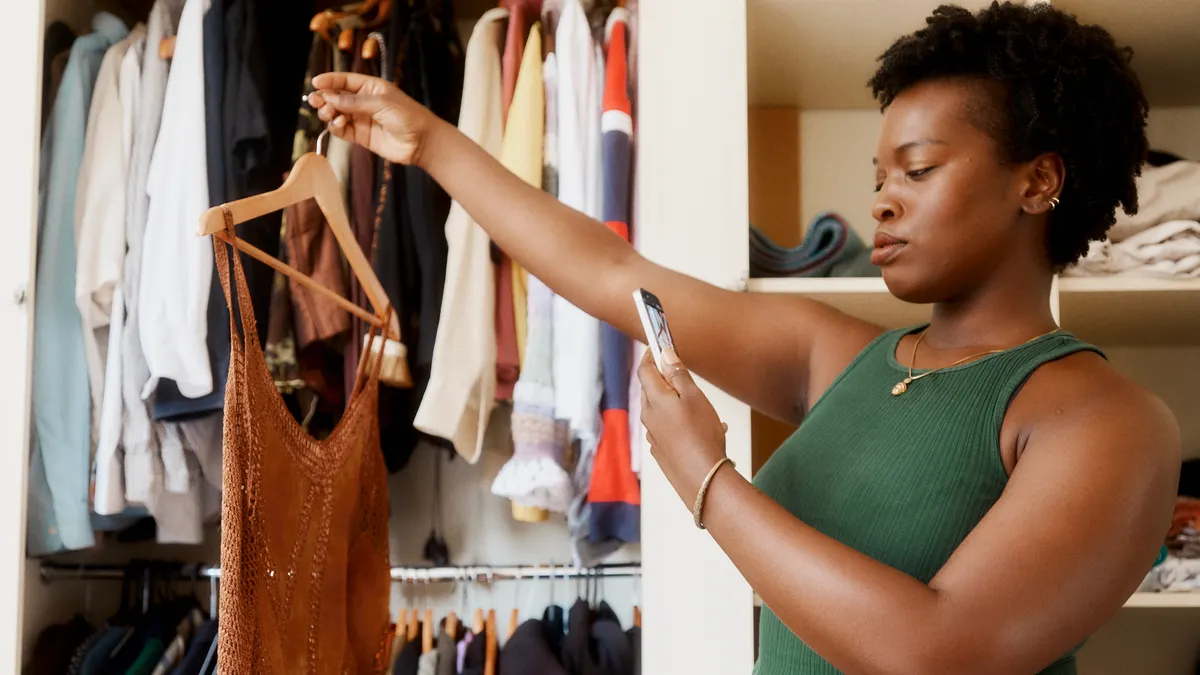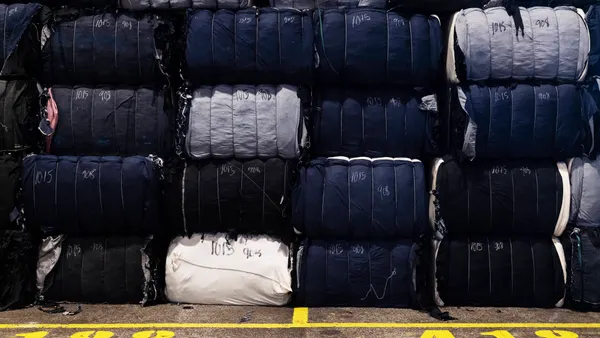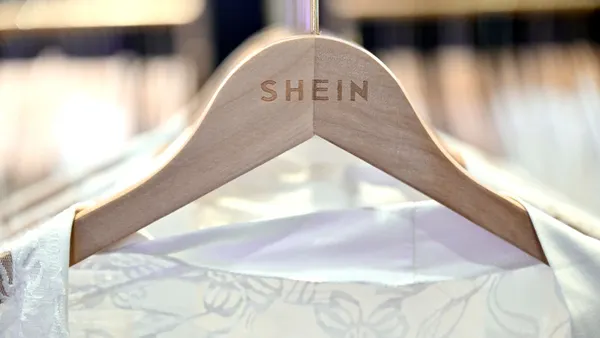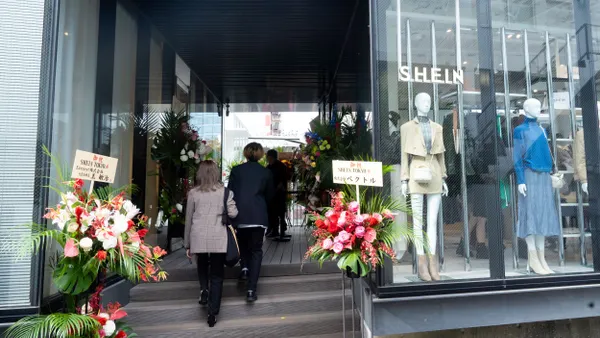Dive Brief:
- The Recommerce Caucus, aimed at championing legislation and initiatives that prioritize the buying and selling of pre-owned, refurbished and secondhand goods, launched last month.
- The caucus, spearheaded by U.S. representatives Nicole Malliotakis, R-N.Y., and Sydney Kamlager-Dove, D-Calif., is endorsed by online platforms including eBay, Depop, Etsy, Mercari, OfferUp, Pinterest and Poshmark. The caucus aims to prioritize “empowering small sellers, expanding digital access, and strengthening sustainability,” per the release.
- The recommerce sector is projected to reach $1.04 trillion globally by 2035, and this caucus will work to support initiatives “that extend product life cycles, cut down on landfill waste, and encourage environmentally responsible commerce,” per the release.
Dive Insight:
The bipartisan Recommerce Caucus is designed to advocate for policies that help individuals and small businesses earn income through resale, repair and refurbishment on digital platforms, according to the press release. The group also wants to reduce participation barriers to online platforms and promote digital access “so all Americans can fully benefit from recommerce’s economic potential.”
Ashley Shillingsburg, head of Americas government relations at eBay, said the caucus will directly benefit not only platforms, but individual consumers.
“By aligning public policy with the realities of modern commerce, the caucus has the potential to unlock new opportunities for online platforms and deliver meaningful benefits to consumers nationwide,” Shillingsburg said in an email.
According to ThredUp’s 2025 Resale Report, the U.S. secondhand apparel market grew five times faster than the overall retail clothing market last year, and it’s expected to reach a $74 billion valuation by 2029.
Cathy Moscardini, head of sustainability at Depop, said the new group will facilitate access to that revenue stream.
“The Recommerce Caucus can help mainstream circular practices, drive economic opportunity for small businesses and individual entrepreneurs championing the circular economy,” Moscardini said in an email. “At a time when consumers are prioritizing affordability, it can also mean greater access to desirable, secondhand fashion — making it easier and more attractive to buy and sell across the circular economy.”
Some coalition members stressed the importance of prioritizing and engaging with small sellers in future policy decisions, particularly when it comes to ensuring digital access to platforms that facilitate buying and selling refurbished and secondhand goods.
“We’re aligned on being good actors in this space and really championing the concept of reccomerce in a responsible way,” Nathan Garnett, chief business officer at OfferUp, said. “Buyers and sellers might be interested in remaining in their community. For example, children’s clothes — if your kids grow out of them, you might like having somebody down the street who has a child a year or two younger than yours, and you can exchange clothing that way. It can be local.”
The Recommerce Caucus has also received endorsements from member organizations including American Circular Textiles, a group of fashion industry leaders advocating for policy solutions to promote textile and garment sustainability, and the Coalition to Protect Small Sellers (PASS Coalition), a group of third party e-commerce marketplaces that enable individual buyers and sellers to exchange goods.
“Our mission as an organization is to target policies at the state and federal level that are supportive of the circular economy in the United States specifically,” Rachel Kibbe, founder and CEO of American Circular Textiles, said. “And so whether that is enabling consumers to more easily participate in buying and selling on used clothing platforms or making it more cost effective to stand up these businesses and run them and grow them and be prosperous … that’s our goal.”










